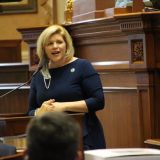Getting to Know NETC President Dr. Kyle Wagner
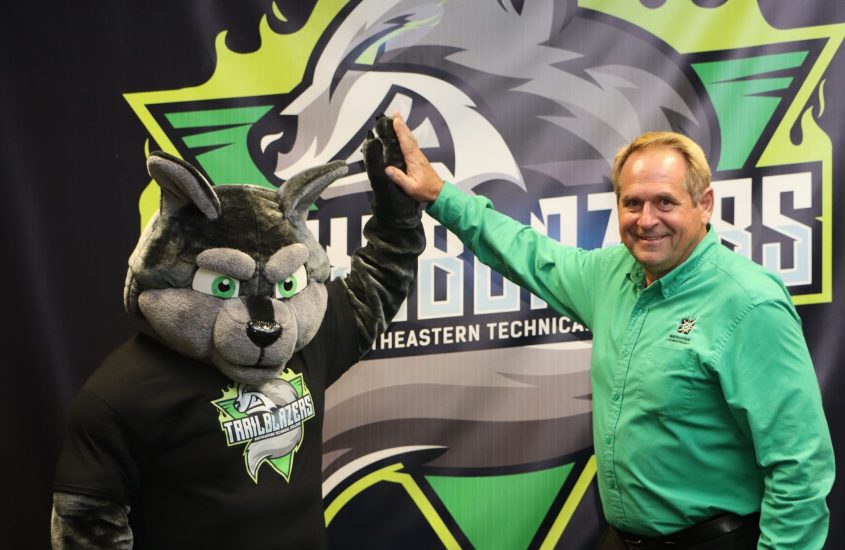
Dr. Kyle Wagner’s successful nearly 40-year career track throughout academia, entrepreneurship, farming and mechanics reads like the diverse talent of a champion decathlete.
As current president of Northeastern Technical College (NETC) since 2016, Wagner has made a lasting impression in whatever role he’s held over the years – and wherever that happened to be in the country – including here at NETC. Originally from Oregon, he graduated from a small, rural high school in a senior class of six students.
“When I graduated from high school, I had less than a 2.0 grade point average,” says Wagner with a laugh. “I spent most of my time in shop and I went to high school to play basketball, so, academics were never one of my really strong points.”
He describes himself as an “honor student in technical and working with my hands,” with strengths in math and science. Also when he graduated, Wagner found out he had dyslexia, which wasn’t considered a handicap at the time.
“When I went to my guidance counselor and said, ‘Hey, I’m thinking about going to the community college and take autobody,’ she literally kicked her head back and started laughing and said that maybe I can try to get a job with a local farmer,” says Wagner. “And, so, that’s what I did.”
Wagner began working at Brittany Farming Co. in Oregon, where they harvested peas, corn carrots, lima beans, and green beans. But, because he was mechanically inclined, he spent more time fixing the farm’s combines and vehicles.
“At the end of that summer, they came to me and asked me to work full time to do the rebuilds over the winter,” says Wagner. “But I needed to have a forklift certification to do that.”
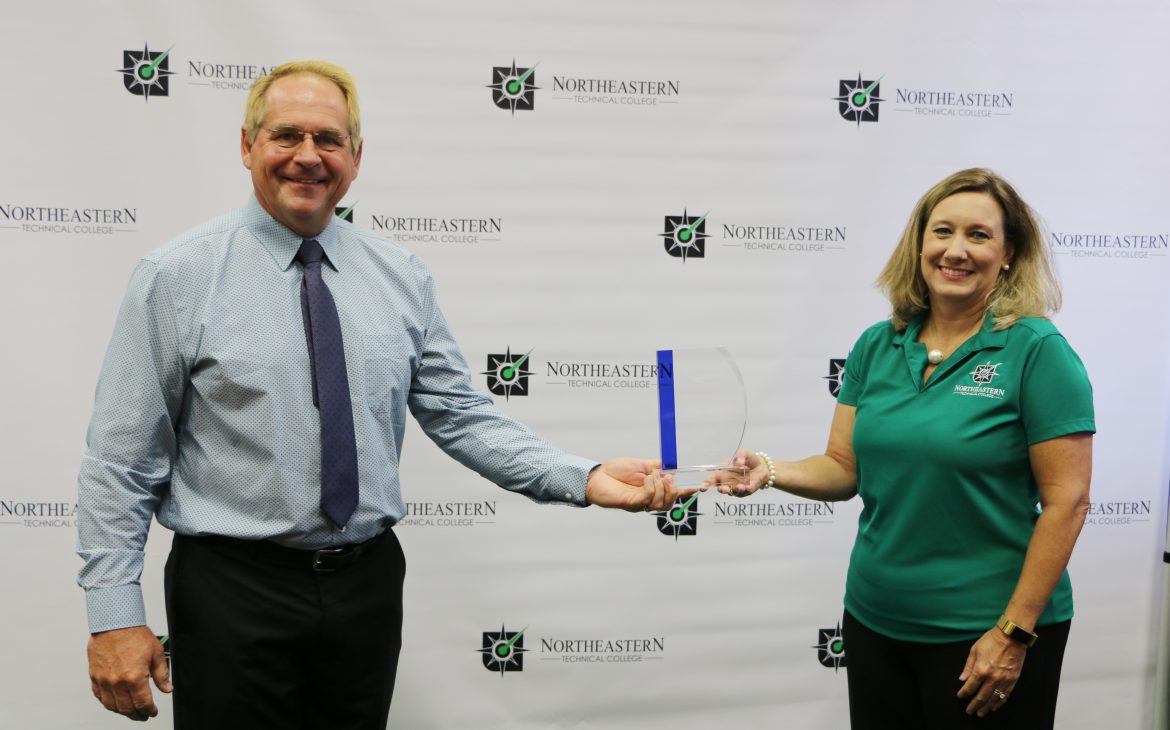
And so began his return to the world of academics, commencing with an eight-hour forklift certification class at Walla Walla Community College, where he graduated at the top of his class. That was followed by an ARC welding class and a few others over the next two years, which always led to a pay raise at work. Which made Wagner realize there was something to this process, so he enrolled in the State Technical College of Missouri for their aviation maintenance school.
From there, Wagner’s flight trajectory continued its course. With his A&P certification, along with an associate’s in technology, in hand, Wagner put his degree in aviation maintenance to use through several airlines across several states for the next seven years. He then switched routes for the next 12 years, running his own vending business, real estate agency and construction company.
His next stop: earning a B.S. in aviation technology, a master’s degree in aviation safety, and a doctorate of philosophy in organization and management from University of Central Missouri, where he worked his way up the faculty ladder, from a TA for aviation maintenance courses to program coordinator/lead instructor. Wagner also served as a visiting assistant professor at Purdue University, where he also expanded his Ph.D. research in entrepreneurship incubation and business development to support community. And in 2007, Wagner embarked on his current journey and passion: working with community colleges.
“When I was at the universities, I was looking around and there weren’t a lot of students like me there,” he says. “In other words, they weren’t students that were technical-minded, good with their hands. They weren’t those kinds of students.”
That’s what jumpstarted Wagner’s work today at NETC. He was inspired to become a president and create a true open access college, he says, that will allow any student, no matter where they’re at in life, to get the job skills or the education that they need to succeed.
“Most people think that you have to have a high school diploma to go to college, and that’s not true,” he says, “and I saw that this was a huge opportunity that people were not getting access to education. And in my own personal life, the more access I got to education, the more successful I was. … Access to education is a key factor for economic growth within an individual.”
Before Dr. Wagner made the move to South Carolina, he served as the director of aviation at Salt Lake City Community College; the assistant dean of aerospace and related technologies and vice president of workforce innovation and education at ASU Mid-South College in Arkansas; and vice president of instruction and economic development at Coastal Bend College in Texas. It was his mission everywhere he went, he says, to learn and accept jobs within different departments of each college for a holistic approach to learning how a college as a whole makes a student successful. Why South Carolina?
“South Carolina was one of my top state choices because of a technical college system focused on workforce education,” says Wagner. “And within that technical college system, NETC had the independence as a local college to do what we needed in a local community, while also being part of a larger resource that we could leverage other colleges around the state to help us bring what we need to our local community.”
When he first became president of NETC, Wagner says his biggest challenge was making the college, faculty and staff, and the communities within Chesterfield, Marlboro and Dillon counties to realize this role to give anyone access to a higher education.
“It’s their God-given right,” he says. “I believe a four-year degree is not for everyone, but I believe that college is for everyone to grow and to earn more money.”
Since Wagner’s tenure began, enrollment increased from 850 traditional students to 2,100. One of the initiatives that improved student engagement like this is from providing broadband Internet in each student’s home.
“The whole idea is that the college student doesn’t have to come to the college, we’re taking the college to the student,” says Wagner. “It’s so important to the access of education and access of world market to help small businesses and our community.”
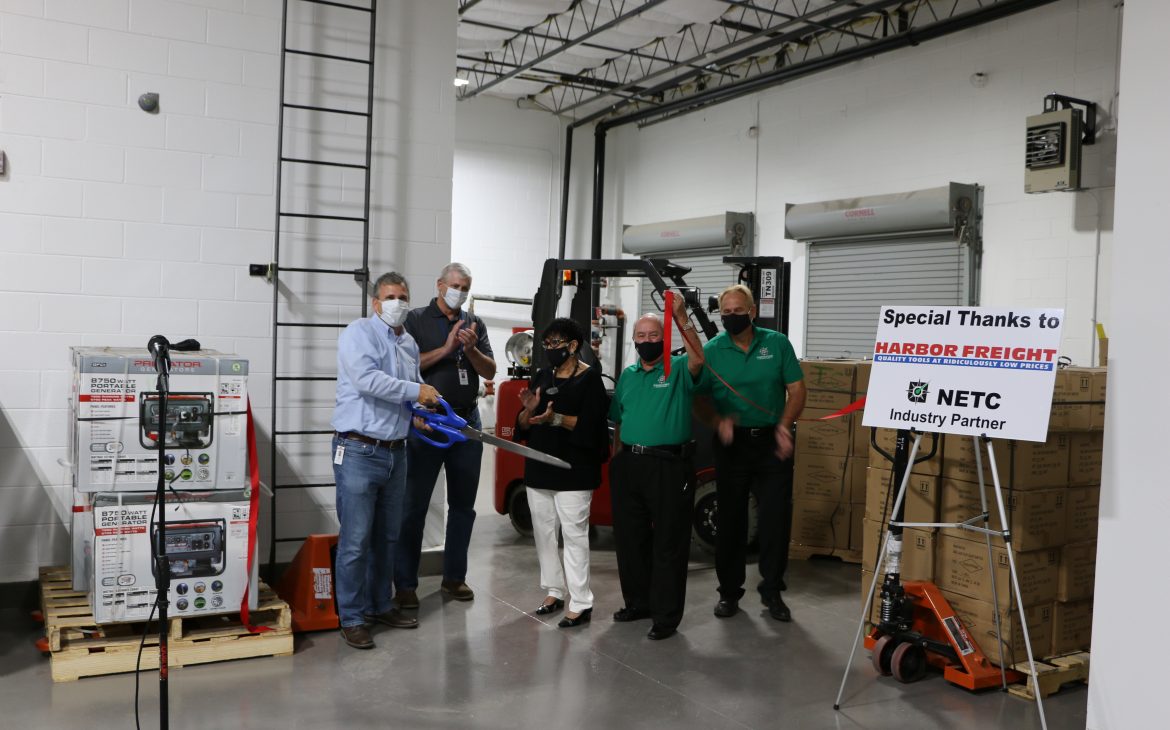
Wagner and his team at NETC created a mapping system that found all the locations in the community that did not have Internet access and shared that info with partners Sandhill Telephone Cooperative and Spectrum to identify priority areas for broadband.
“It’s the same thing as having a paved, four-lane road or a freeway that goes into your community,” he says. “If you don’t have one, you’re going to be limited on what companies can do in your community and grow. Broadband is a crucial key to rural South Carolina’s access to success in the future.”
Wagner’s team also bought 700 computers for students to check out just like they check out a book at the library. Then, based on the student’s address and needs, NETC can partner with a hotspot provider to provide Internet access.
When Wagner arrived at NETC, he discovered that the college hadn’t changed a program in more than 10 years. He changed that, by completely revamped the college’s academic offerings into stackable credentials, something similar to Wagner’s customized academic journey.
“It’s any demonstrated skill, concentrated work experience, approved licensure, recognized certification, or academic degree that, when coupled with – or stacked upon – any others, qualifies a person for increased workplace responsibilities, enhanced career opportunities, and/or higher pay,” he explains.
The school now offers 53 certificates within 11 different industry sectors, from culinary to manufacturing to nursing and EMT to pre-engineering unmanned aircraft operations – with new programs added all the time. Two years ago, NETC received a grant from the National Science Foundation to start a diesel technician program. Wagner also created a Student Services division of the college that provides funds through the college instead of only federal grants.
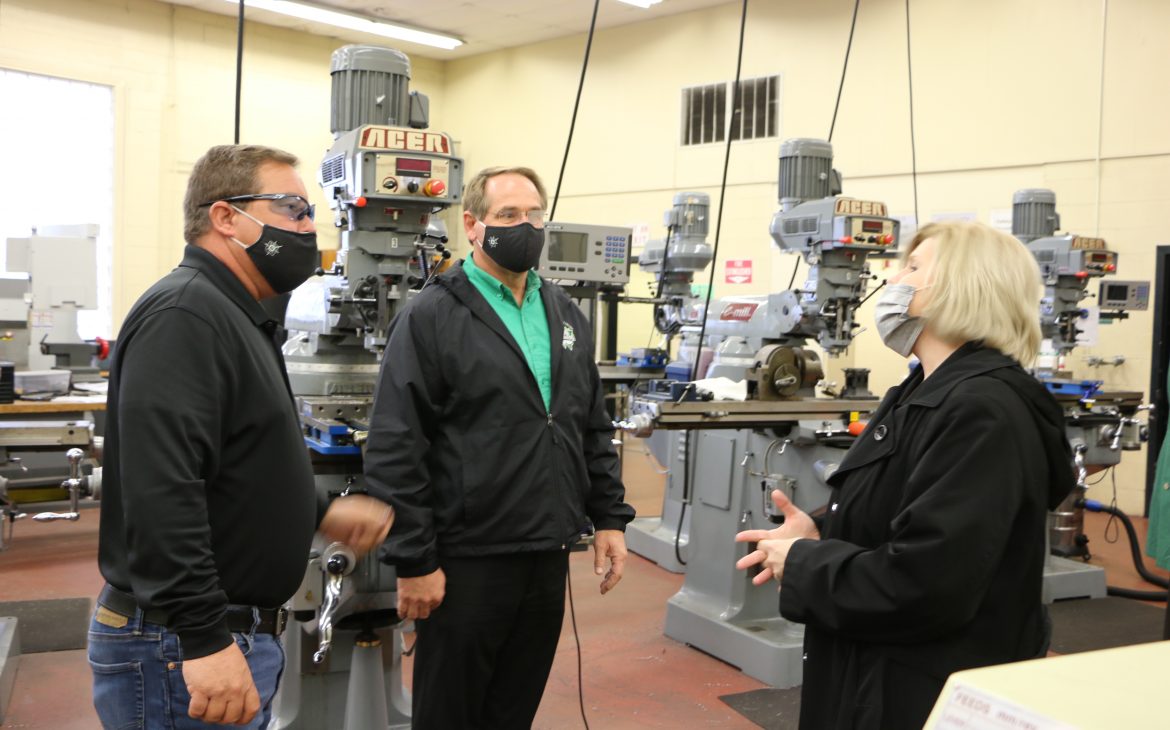
“As for our staff, I’ve always encouraged education,” says Wagner. “When I got hired on, I was one of only two Ph.D.s on staff, and now we have several staff with Ph.D.s.”
To encourage faculty education, NETC offers a pay stipend every year for the degree level you own, i.e., a bachelor’s degree earns $1,500 additional pay per year, a master’s degree, $3,000, and a Ph.D., $5,000. And if an employee has two program areas they could teach in, that’s an additional stipend.”
“I have one teacher that teaches speech and theater,” says Wagner. “When she got her master’s degree in theater, we expanded and we now have a theater department.”
Future goals for Wagner and NETC includes improving the school’s education attainment in the service area. Right now, it stands at around 12 to 14%; the state is 44% and the national average is 66%. Wagner’s goal is to climb to higher than 66%.
In the fall, NETC will undergo a major $5 million renovation on the Cheraw campus and $5.5 million on the Marlboro campus – a much-needed update and expansion that hasn’t been done for decades – to move the school into 21st century technology. A new flex industrial training warehouse will be three times the size of two buildings that now stand on campus. More construction plans include the addition of a five-bay diesel shop and fabrication welding shop.

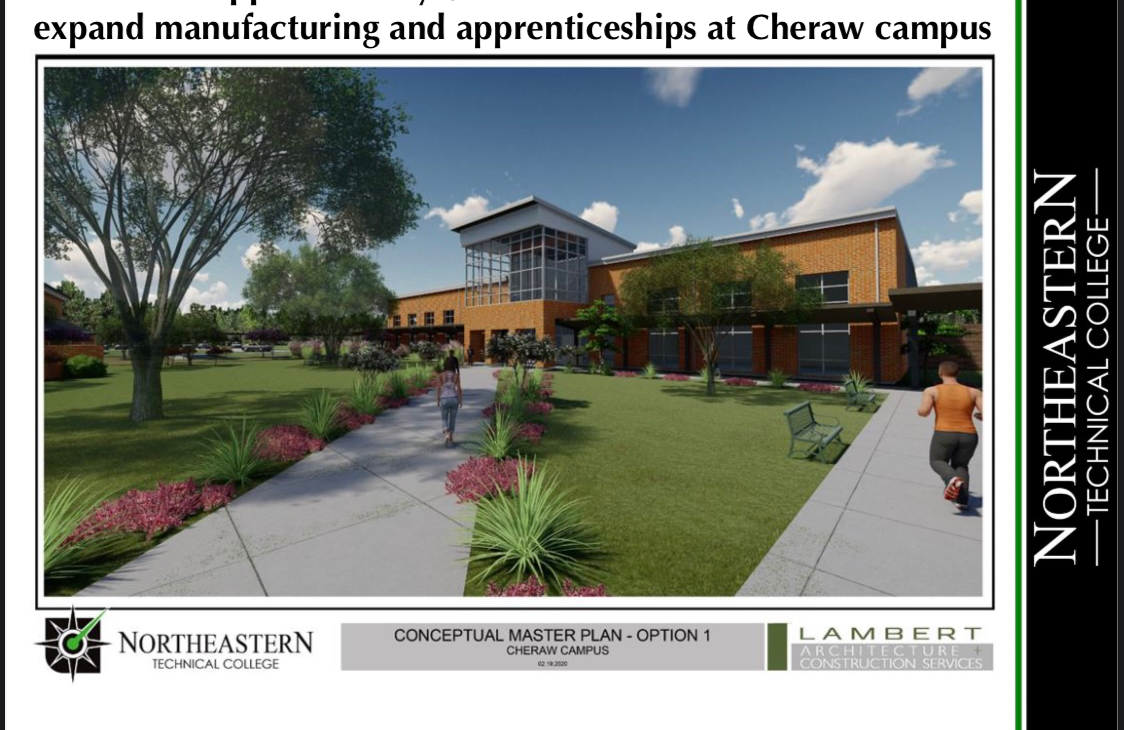
“My ultimate plan in the future is to move Chesterfield, Marlborough and Dillon counties forward,” says Wagner. “We want our rural community to feel that they have a great resource here at Northeastern Technical College to bring more jobs and earning opportunities.”
For more information on NETC, visit www.netc.edu.




